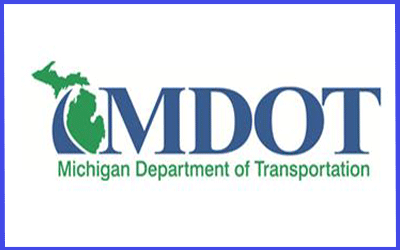Amid the cacophony of competing opinions about our commonweal, there is a touching consensus about the alchemising powers of business and entrepreneurship. Barring those on the left who view all profit as legalised theft, the rest of us agree that if there is one thing that will catapult us to prosperity, it is commerce. Business, we think, can unlock the door to instant nirvana.
Exaggerated though this view might be, there is no denying that trade and investments have enhanced our well-being. No wonder few institutions can rival the vice-like grip of the marketplace on our collective imagination. Yet, in recent times, flagrant corporate skullduggery, fraud and manipulation have left us distrustful. We are appalled by the environmental destruction wrought by businesses and their exploitative labor practices. The Enron scandal, the Exxon Valdez and BP oil spills, the Volkswagen deception, and the offshore shell companies and dubious transactions of businesses, as revealed in the Panama, Paradise and Pandora papers, have eroded our faith in capitalism.
The aberrations of the business world, the social pathologies they engender, spring from a mistaken view that the only legitimate objective of a business is to be profitable and augment shareholder value.
This self-serving doctrine has become the cornerstone of the capitalist ethos. Business schools assiduously perpetuate this mythology. The faceless investor is now the unchallenged monarch who has to be humoured at all costs. To gloss over the single-minded pursuit of profits above all else, businesses espouse corporate social responsibility, a vacuous agenda betokening the triumph of symbol over substance. Such welfare programmes barely camouflage the predatory practices of the business world. Discerning observers are dismayed to the point of declaring that profits and purpose are incompatible. Businesses, they aver, are inherently incapable of being virtuous.

Geoffrey Jones
Deeply Responsible Business: A Global History of Values-Driven Leadership
Harvard University Press, 2023
Professor Geoffrey Jones, Isidor Straus Professor of Business History at Harvard Business School and a Fellow of the Academy of International Business, rejects this view. He argues that with visionary and value-driven leaders, businesses can be simultaneously purpose-driven and profitable. In his new book, Deeply Responsible Business: A Global History of Values-Driven Leadership, published by Harvard University Press this year, Prof. Jones subverts received wisdom about the logic of business and capitalism. He makes a strong case for reimagining capitalism and posits that the first step in this process is to reconceptualise business and its social purpose.
According to Jones, the fundamental responsibility of business is to advance human flourishing, not just the prosperity of shareholders. He says businesses must be wedded to what he calls ‘deep responsibility’ predicated on honesty, fairness, loyalty, compassion, courage and generosity. A deeply responsible business, Jones avers is committed to fully realising human potential. It is imbued with spirituality in that it never loses sight of the interconnectedness of all life.
Jones identifies three characteristics of deeply responsible business leaders. First, they choose an industry with some form of social value that is not actively harmful. Second, deeply responsible leaders do not engage in harmful or exploitative relationships with stakeholders such as investors, employees, suppliers, customers and the government. They interact with purpose and humility. Third, deeply responsible leaders support communities and contribute to their vitality.
Lest you dismiss his ideas as eccentric or utopian, Jones provides examples of deeply responsible business leaders worldwide who successfully blended profits with purpose and made stellar contributions to their communities. George Cadbury, the founder of Cadbury’s chocolate company in Britain, inspired by Quaker values, worked ceaselessly for the welfare of his workers. He opposed sweatshops, campaigned for old-age pensions, and supported labor unions. Cadbury disliked inequality. He treated his workers with dignity, established welfare policies, and provided affordable housing to the poor in Bournville, a new township in Birmingham, UK. A man ahead of his time, Cadbury opposed British imperialism and armed conflict.
Edward Filene, the head of Filene’s department stores chain in Boston, which much later became Macy’s, was an American entrepreneur and philanthropist deeply devoted to the well-being of his employees. A proponent of ‘industrial democracy’ and the equal distribution of wealth, he paid his workers sumptuously and gave them an active role in running his business. Filene also established credit unions to help the less privileged and was hailed as the father of the credit union movement in America. He was deeply invested in his city, Boston, and wanted to make it a world-class metropolis. Filene also worked with the Catholic archbishop of Boston to set up the Boston Dwelling House Company, a venture for providing low-income housing for the underprivileged.
In Germany, Robert Bosch, industrialist, engineer, and founder of Robert Bosch GmbH, pioneered pro-labor policies. He paid high salaries to his employees and invested heavily in their training. In addition, he provided housing and libraries for his workers and supported collective bargaining. A proponent of socialism, Bosch was keen on promoting the autonomy and well-being of his workers. His company was the first to introduce eight-hour workdays. Bosch donated generously to humanitarian and educational causes. A great believer in homeopathy, he donated 5.5 million marks on his 75th birthday for starting a full-scale homeopathic Robert Bosch Hospital. At a time when most business leaders, motivated by their self-interest, did not speak out against the Nazis, Bosch actively criticised their policies and opposed them. Guided by his convictions, he helped Jews persecuted by Hitler.
Jones applauds several Indian businessmen for their singular display of deep responsibility. He lauds the pioneering work of Indian business barons like Ghanshyam Das Birla, Jamnalal Bajaj, and Lalbhai Kasturbhai. Lalbhai played a pivotal role in developing the Bombay Plan in 1944, which delineated the role of the government in forging economic policy. As an industrialist, he played a significant role in India’s new chemical and textile sectors. A close associate of Gandhi, he was associated with the Tilak Swaraj Fund, set up by Gandhi in 1921 to collect one crore rupees to fund India’s freedom struggle. Besides, he set up the Gujarat Chamber of Commerce and tirelessly worked to promote education as the Chairman of the Ahmedabad Education Society.
Jones also praises the Parsis as exemplars of deep responsibility. A prominent figure among them was Jamsetji Jeejeebhoy, a Parsi merchant in Mumbai who grew rich trading cotton and opium to China during the first half of the 19th century. He experienced penury in his younger days and wanted to help distressed people. Jeejeebhoy set up several hospitals and schools and donated to several worthy causes. A fellow Parsi, Jamshetji Nusserwanji Tata, widely regarded as the Father of Indian Industry, was also a redoubtable philanthropist. A textile tycoon who later branched into iron and steel, hydroelectric power, hotels, and so on, Tata had the Midas touch in business. Success did not make him oblivious to social obligations. Tata was famously large-hearted in his altruism. As Jones points out, he was greatly inspired by the Zoroastrian teaching that ‘poverty and suffering are an affliction of evil,’ and removing them requires ‘constructive’ not ‘patchwork’ philanthropy. Galvanised by this vision, Tata set up several hospitals, schools, and institutions of higher learning, most notably, the Indian Institute of Science. He also set up the J.N. Tata Endowment for the Higher Education of Indians in 1892, which helped thousands of deserving students pursue their educational dreams. One of his enduring legacies was transforming a sleepy, nondescript village, Sakchi, into Jamshedpur, a modern city he built in Jharkhand.
The Jamshetji Tata of Japan was a serial entrepreneur, visionary, and doyen of business, Shibusawa Eiichi. He launched 500 companies during his lifetime. Hailed as the Father of Japanese capitalism, Shibusawa earned his spurs for setting up the Dai’ichi Bank – First National Bank – the first modern bank of Japan based on joint stock ownership. He accorded great importance to investing in people and was dedicated to making them prosperous through economic activity. Shibusawa favored Gapponshugi, capitalism infused with moral values. He encouraged women’s education and patronised several educational and entrepreneurial ventures. Like Tata, Shibusawa is well-known for founding the Denenchofu Garden City, a self-sustainable garden city supervised by a socially oriented corporation.

Geoffrey Jones. Photo: Harvard Business School website
Jones’ history of deeply responsible business leaders underscores two crucial points. First, though hugely successful, primarily due to a combination of diligence, a robust business sense, and luck, they did not lose sight of their social obligations. What was common to Cadbury, Filene, Bosch, Tata, Shibusawa, and others was that they combined their staggering business acumen with an abiding devotion to enhancing people’s lives in their communities. Unlike business magnates of our times, they did not park their profits in tax havens. Instead, they answered a higher calling and bowed to the imperatives of social solidarity. While doing so, they did not neglect their bottom line. These deeply responsible leaders instantiate that advancing human capabilities and earning popular goodwill are high-return investments in business.
Second, though exceptional, the accomplishments of deeply responsible businessmen were not unblemished. They, too, were fashioned from the crooked timber of humanity. A singular strength of Jones’ book is its measured appraisal of deeply responsible leaders. He astutely notes their imperfections and explains why they matter. George Cadbury was controlling. Filene was abrasive and annoying. Bosch collaborated with the Nazis; Hitler gave him a state funeral. Shibusawa Eiichi supported Japanese imperialist policies and urged women to be good mothers and wives. Though initially well-intentioned, Anita Roddick, the founder of the iconic Body Shop, lied and ill-treated her workers. Albeit flawed, these business leaders were animated by a humanistic vision, and their work was leavened by their deep philosophical convictions and religious values in some cases. Moreover, they proved that, despite frailties, one can actualise ideals and give a good account of oneself.
Nevertheless, one might quibble about the longevity of the edifying business practices discussed in the book. In several instances, the original idealism of the business moguls died after their demise. Cadbury’s, for example, changed hands several times. Mondelez International, the second-largest confectionery brand in the world, now owns it. In its latest incarnation as Macy’s, Filene’s department store is now owned by Federated Department Stores. In both instances, they have become regular, unremarkable businesses. They have little interest in furthering the ennobling legacies of their founders. Several deeply responsible businesses of the past have now become unrecognisable compared to earlier, meritorious manifestations. This distressing metamorphosis raises troubling questions about the sustainability of deep responsibility as a business model. A true believer, Jones avows the potency of deep responsibility. Why, then, is it not being taught in business schools? Jones candidly acknowledges that his institution – Harvard Business School – tried and failed long ago. It is now reputed for purveying shareholder capitalism. He chronicles attempts by Wallace Donham, the second Dean of the Harvard Business School, to introduce ethics and social responsibility in the business curriculum in the Depression era. Donham wanted to teach business students philosophy, history, and the social sciences to stimulate creative and critical thinking. He roped in Alfred North Whitehead, the English mathematician, and philosopher, to inspire students and ignite their imagination. Donham’s efforts came to naught. Students and faculty evinced no interest in ethics and the social sciences.
Donham was a perspicacious educator. His premonitions were prophetic. Deprived of the emancipatory influence of the liberal arts, business schools uncritically disseminate discredited dogmas. As Jones argues, the idea that the sole purpose of business is to generate profits, famously popularised by Milton Friedman, rests on a fallacious reading of Adam Smith, the putative founder of capitalism. He notes that even Adam Smith emphasised morals and believed that ‘markets would only deliver socially productive outcomes if ethical concerns guided businessmen.’ Unmindful, business graduates work diligently to augment the investments of shareholders. Reversing this trend begins with recognising that deep responsibility is not an adventitious phenomenon. It is learned behaviour and must be consciously inculcated.
As uplifting as deep responsibility is, it is not for everyone. Many try, but only some succeed. Jones’s book is replete with business leaders who lost their way because they were over-optimistic or made myopic business decisions. Yet others succumbed to the siren song of Mammon as they tried to scale their business while professing commitment to values. Imbued with the sensibilities of a seasoned historian, Jones provides a rich, layered account of the agonising challenges of practicing deep responsibility.
Daunting obstacles notwithstanding, entrepreneurs worldwide are drawn to the magnetic power of deep responsibility. They have forged a plethora of new initiatives – conscious capitalism, ethical investing, environmental, social, and governance (ESG) investing, and B corporations – all aimed at curbing the untrammelled forces of profiteering. B corporations are audited based on their finances and contribution to society and the natural environment. The goal is to promote sustainability, human dignity, and the ‘economy of communion’: using business to increase equality. There are currently 6000 Certified B Corporations in over 80 countries and over 150 industries. Cassandras of doom might dismiss such efforts as ‘corporate greenwashing.’ Yet, according to the Organization of Economic Cooperation and Development Report, 2020, the total assets under management that incorporated some element of ESG review and decision-making had reached 11 trillion dollars in the United States and 17 trillion dollars in Europe.
This impressive accomplishment is the impetus for Jones’ advocacy of deep responsibility. He knows it cannot save the world, but it can certainly help. Jones exhorts governments to modify policies and the legal context to incentivise deep responsibility. Business leaders also have a critical role to play. Jones urges them to refrain from distorting policy-making through lobbying. Business leaders must also avoid deliberately causing ecological and social damage to the people and the planet. They must be catalysts for innovative solutions and strive to create an ecosystem suffused with deep responsibility.
Badrinath Rao is an Associate Professor of Sociology and Asian Studies at Kettering University in Flint, Michigan, in the United States. An attorney in the US, he is also the host and Executive Producer of Ideas and Insights, a public affairs TV show.










